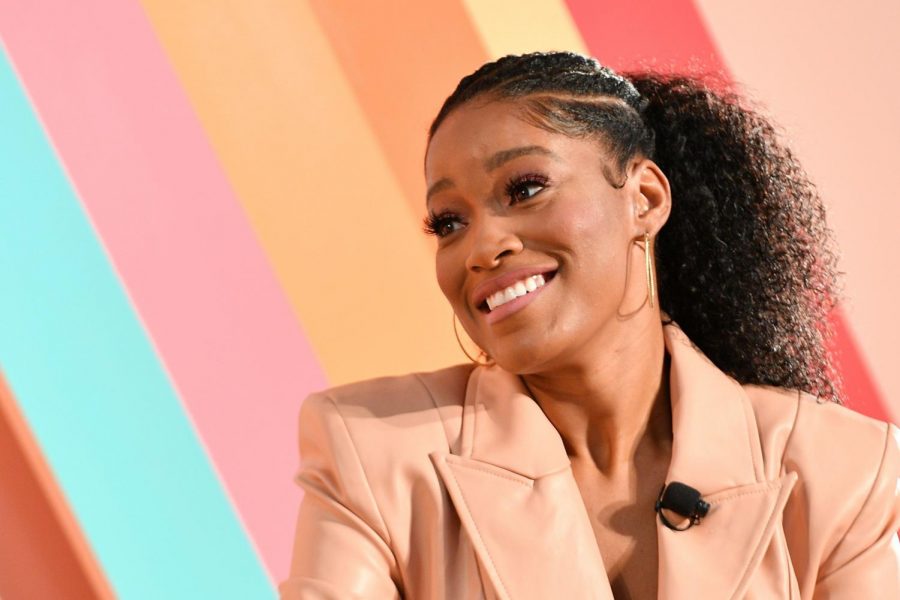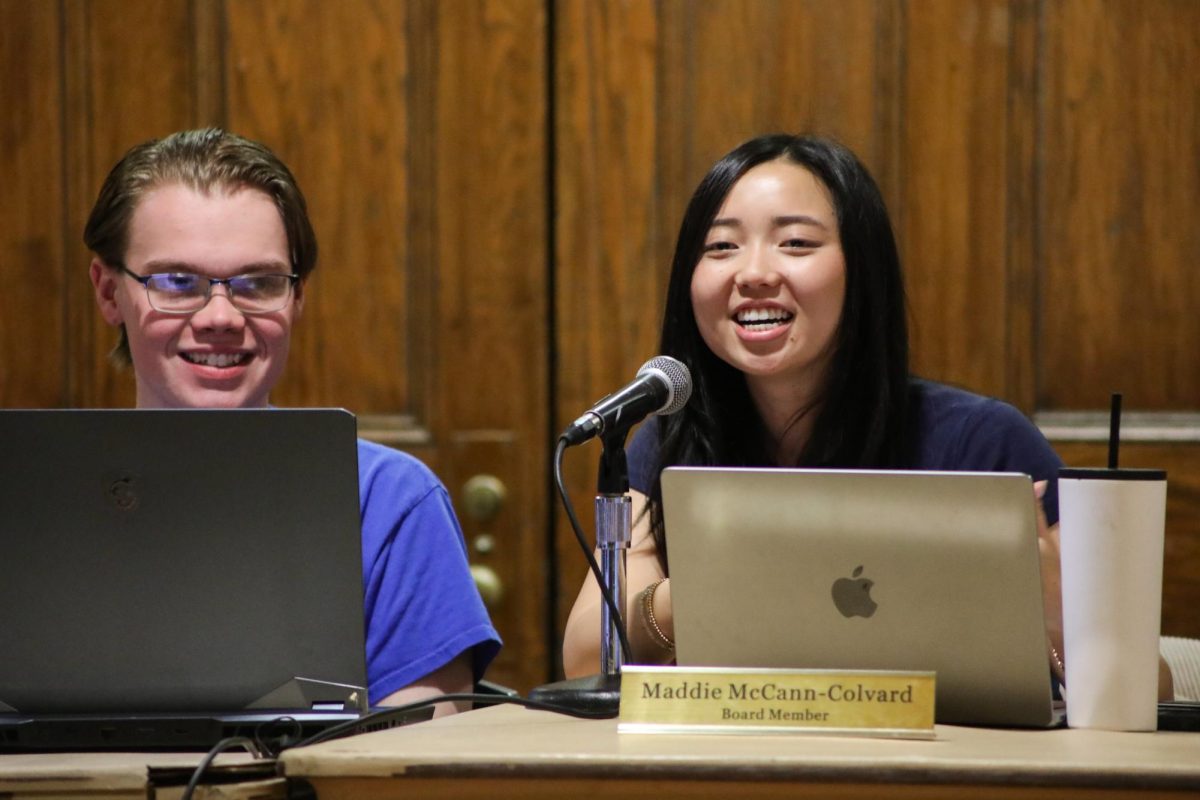Keke Palmer discusses stardom, sexism and Black Lives Matter at virtual event
Via Dia Dipasupil, Getty Images | TNS
Keke Palmer spoke at a Zoom event Monday about her identity as an artist, activist and Black woman in the entertainment industry for Black History Month, sponsored by Pitt Program Council and Black Action Society.
February 24, 2021
For many college students, Keke Palmer is a familiar face as the star of the hit TV show “True Jackson, VP.” Her continued work in the entertainment industry, as well as her activism regarding issues of social justice, has only caused her popularity and influence to grow.
Palmer brought her talents to Pitt on Monday to discuss her identity as an artist, activist and Black woman in the entertainment industry in a Zoom event for Black History Month, sponsored by Pitt Program Council and Black Action Society.
Since her time on Nickelodeon, Palmer has collected many different credits to her name. She worked on the horror comedy series “Scream Queens,” starred in the 2019 hit film “Hustlers” and released an EP titled “Virgo Tendencies, Pt. 1” in 2020. She is also known for her comedic presence, which perhaps is best highlighted by the “sorry to this man” meme, which went viral while she had taken a lie detector test on Vanity Fair. Most notably, Palmer hosted the 2020 VMAs last August, which had no in-person ceremony due to the COVID-19 pandemic, and made headlines as the first Black woman to ever host the show solo.
In spite of these accomplishments, Palmer recalled many instances throughout her career, going back to her childhood, when she was challenged by authority figures just for being herself. She described working on the set of “True Jackson, VP,” a show where a teenage girl is elected vice president of a fashion company, and the instances of sexism she faced while growing up on set.
“We were in the second season of ‘True Jackson’ when they started taping my boobs down,” Palmer said. “And I remember just being like, we really gotta go here with it? You do know young women are all over the world like growing up and it’s a very normal thing for them to have.”
In addition to describing her experiences with sexism, Palmer also discussed the influences of Black artistry on her career, and the pressures she felt to progress and honor that legacy throughout her own work.
“There are so many amazing Black people doing amazing things,” Palmer said. “But when you think about the grand scheme of things, sometimes it doesn’t seem like there’s a lot. And I think that feeling puts a lot of pressure on a lot of Black artists, whether it be music or acting or anything else, because they feel like they’ve got to carry the whole culture on their backs.”
Palmer made headlines for a speech she gave during a Black Lives Matter protest in Los Angeles last summer, where she pleaded with members of the National Guard to march with protestors as a sign of solidarity. While the National Guard members got on one knee, they did not join the march with the protestors. Palmer recounted her conversation with a National Guard member.
“He was scared and that’s just unfortunate, because now you have a situation where government officials that are meant to protect us and care for us are afraid to stand with us,” Palmer said. “That lets you know that there is an issue when it comes to the government and its people, because now you have people afraid to do the right thing because it might cost them their job. Those two things should be in alignment! So the fact that they’re not means we got work to do.”
Even before this moment went viral, Palmer has been known for her vocal support of social justice issues. She uses her social media platforms to advocate for various social justice issues, and posts videos on Instagram and Facebook addressing these concerns while tying in anecdotes from her own life. Palmer’s opening monologue as host of the VMAs combined her traditional humor with honoring frontline workers and addressing the need for Americans to continue working together to address issues of systemic racism.
Morgan Ottley, president of BAS and one of the co-hosts of the Palmer event, stressed the importance of hosting activists like Palmer to discuss their own experiences as Black people working and living in America. She said hearing activists bring awareness to Black issues ensures that the legacy of Black achievements is honored, even apart from traditional Black History Month events.
“It’s not really a movement, it’s more so like, ‘My Black life actually matters,’” Ottley said. “By asking her things like, ‘What is it like to be a Black woman in the entertainment industry?’ that’s immediately highlighting BLM because it addresses the issue of there not being many Black people in the entertainment industry.”
Quincey Johnston, PPC’s lecture director who co-hosted the event with Ottley, said it was important that Pitt sponsors a diverse array of people to speak about their experiences, and also emphasized the importance of hearing celebrities in the entertainment industry discuss infusing their personal identities in their work.
“That’s especially relevant for college students going into adulthood — remembering that everyone is a real person with their own struggles with things going on in their lives that they don’t necessarily talk about or broadcast,” Johnston said.
To conclude the event, Palmer discussed her ambitions and motivations as an artist working in the industry and discussed her goals for the future, working both behind and in front of the camera. She mentioned some of her projects to come — including hinting at the possibility of “True Jackson, VP” possibly coming to Netflix.
Palmer also encouraged students to pursue their own goals as artists by discussing the importance of developing a “brand identity” to better be able to tie in their personal artistry to the impact they want to have on others.
“How can I bring it down to Earth, this crazy, larger-than-life industry that I’m in? ’Cause ultimately I really want to connect it to those out there that maybe don’t see all the things I see,” Palmer said. “What’s always been important to me is making sure that I’m representing everyone that feels like there’s not a place for them.”



